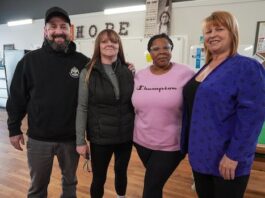
Manan Shah’s day starts when he logs on to his computer at 1 a.m., the glow of the screen illuminating his face as he takes online classes until the sun comes up.
Shah lives in Surat, a city about 300 kilometres north of Mumbai, India. Doing class at home in another time zone while his family is asleep is not how he expected to spend the third year of the commerce degree he is completing through the University of British Columbia.
At this time last year, he was living in Vancouver. He was preparing for summer school and a co-op program to enter the workforce.
“Thanks to COVID, I had to fly back and all my plans miserably failed, basically,” he said.
“But that’s OK. [I] kind of learned a lot from the entire COVID period…. I do not regret any moment of it.”
Shah is one of several young adults who spoke to CBC News about spending their days doing online classes in the bedrooms of their childhood homes, missing parties, relationships and job opportunities.
This isn’t the first young generation to live through a prolonged crisis. The sacrifices of young people during the world wars being a particularly devastating example.
And in this current crisis, older generations are at much greater risk for severe and possibly fatal COVID-19 complications.
Many people have lost work or had their careers cut short. Many families are stretched to the limit financially.
It’s in this context that many young people are facing their own struggles and losses: the stunted careers, the relationships that never had a chance to blossom, and the opportunities that might never materialize in a world that no longer operates in certain ways that helped previous generations succeed.
They have been profoundly affected by the way the pandemic has restructured parts of society and damaged swaths of the global economy.
In B.C., as in other parts of the country, post-secondary institutions have taken learning online, provincial health restrictions have limited social connections, and many entry-level or part-time jobs that once existed for young people have vanished. Young adults in B.C. are not expected to receive a vaccine until late summer or fall.
The pandemic has resulted in many teens and young adults feeling disconnected, hopeless and seeking help for mental health issues in higher numbers.
These are the stories of three young adults whose lives have changed.
Manan Shah, 21

Shah is glad to be spending more time with his family but is finding it difficult to strike a balance between school and his social life while maintaining his physical and mental health.
He had planned to return to Canada this month, but the federal government’s new mandatory hotel quarantine — and the potential $2,000 cost associated with it — is an added financial burden he worries he can’t afford.
“International students are really struggling,” he said.
“It’s not just me. I know so many people, so many friends who are back home and their mental health is being affected with this whole sleep schedule.”
Tegwyn Hughes, 22

Last spring, Tegwyn Hughes was finishing her degree at Queen’s University in Kingston, Ont.
She expected to move to B.C. in the fall to begin a midwifery program at UBC to pursue a career path she’d dreamed of for years. Instead, she moved back home with her parents in Ottawa.
“I really felt like I was just a boat out at sea,” she said.
She connected with some friends from the student newspaper at Queen’s and they decided to start their own online publication called The Pigeon, dedicated to long-form reporting on issues that affect Canadians.
Now, she lives in Duncan, B.C., and wants to pursue a career as a journalist. Hughes is not discouraged by layoffs in the journalism industry. She sees value in pursuing something she enjoys, and intends to keep growing her publication.
“Since almost every career feels kind of in jeopardy right now, you might as well join a risky one,” Hughes said.
She believes the skills she gains as a journalist will even make her a better midwife one day, if she chooses to return to school.
“In the last 20 years, so much has happened that is considered history-making or catastrophic that my generation might just be used to living through terrible things.
“It has certainly made us resilient.”
Bridget Inocencio, 22

Bridget Inocencio, a Simon Fraser University graduate, always dreamed of being a lawyer but considered delaying her first year of law school at the University of Alberta this fall.
She was told she could only do so under “special circumstances.”
“I didn’t have those. It was just the pandemic for me,” she said.
She moved to Edmonton, hoping there would be some in-person opportunities for class and networking. With restrictions on gathering tightening in Alberta this winter, she returned to Surrey, B.C., to live with her parents.
She worries about missing opportunities to connect with classmates and potential employers. She’s not sure what her job prospects will be when life returns to normal.
“Older people tend to think it’s all going to be fine,” she said.
“I don’t think that’s the case all the time. Burnout is real in law school, and doing it in a pandemic with no way to relieve stress by going out with friends or classmates is not something I think they understand.”
‘This is not forever’
Families can support young adults by acknowledging the stresses they face and the opportunities they’ve lost to the pandemic, says Johnny Lo, a mental health therapist and registered clinical counsellor.
“The fears and the anxiety that they’re experiencing are valid. Life is not the same as we know it before, and all the previous opportunities for them to network and meet people, they’re all different now,” said Lo, who is also the founder of Youthwise Counselling in Richmond, B.C.
Young adults are showing a tremendous amount of resilience and creativity in coping, but the pandemic can exacerbate issues for those who are already struggling, he said.
Making an extra effort to connect safely with friends and family and having empathy can help, he said.
“Just remember that there is hope in that this is not forever,” Lo said.
“Find the things that continue to give us joy each and every day.”












